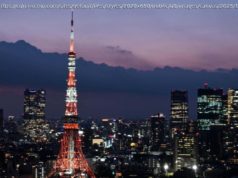The Japanese have opened a “corpse hotel” that are part mortuary, part inn, to serve a growing market of Japanese seeking an alternative to a big, traditional funeral.
OSAKA, Japan — The minimalist rooms at the Hotel Relation here in Japan’s third-largest city are furnished with plain twin beds. Flat-screen televisions adorn the walls. Plastic-wrapped cups and toothbrushes are provided in the bathrooms. And just across the hall are the rooms where the corpses rest.
Checkout time, for the living and the dead, is usually no later than 3 p.m.
The Hotel Relation is what Japanese call an “itai hoteru, ” or corpse hotel. About half the rooms are fitted with small altars and narrow platforms designed to hold coffins. Some also have climate-controlled coffins with transparent lids so mourners can peer inside.
Part mortuary, part inn, these hotels serve a growing market of Japanese seeking an alternative to a big, traditional funeral in a country where the population is aging rapidly, community bonds are fraying and crematories are struggling to keep up with the sheer number of people dying.
By custom, Japanese families take the bodies of their loved ones home from the hospital and sit for an overnight wake followed by a service the next morning in the company of neighbors, colleagues and friends. Then, in the afternoon, the body is sent to a crematory.
But as neighborhood ties have weakened, funerals that once involved entire communities are increasingly the province of small, nuclear families. At the same time, Japanese society is getting old so fast and deaths per year are climbing so quickly that families sometimes have to wait several days before a body can be cremated.
The corpse hotels offer a practical solution — a place where a body can be stored at low cost until the crematory is ready, and where small, inexpensive wakes and services can be held outside the home.
“We can say the supply doesn’ t meet the demand, ” mainly in urban areas, said Hiroshi Ota, an official at the Japan Society of Environmental Crematories. While Japan has an estimated 5,100 crematories, Tokyo, with a population of more than 13 million, has just 26.
“The demand for cremation will increase until the baby boomers disappear, ” Ota said.
Japan has funeral parlors, too, an industry that developed as people moved from the countryside to the cities and it became difficult — and often impossible — to take corpses into high-rises. But they cater to larger groups and more elaborate ceremonies, and these days, that can seem a bit much.
In the bubble economy of the 1980s, “Japanese funerals were based on showing off to other people, and people cared how they were viewed by others, ” said Midori Kotani, executive researcher at Dai-ichi Life Research Institute, an arm of one of Japan’s largest insurance companies. “But fewer and fewer people talk to their neighbors, so they don’ t have to show off or think about how they are viewed by them.”
The corpse hotels are used by families who want a simpler affair, or want to skip a funeral altogether. According to Kotani, about 30 percent of deaths in the Tokyo area are not marked by a funeral service, up from just 10 percent a decade ago.
After cremation, families usually keep the ashes at home for 49 days before a burial service at a cemetery. On the 49th day, according to Buddhist tradition, the dead are believed to arrive at the next world.
When Hajime Iguchi died at age 83 last autumn, his sister and brother-in-law held his wake and funeral at Sousou, a corpse hotel in the Tokyo suburb of Kawasaki City. Iguchi, a lifelong bachelor, had died in a nursing home after a protracted illness, and had few friends left.
“Back in the day, we used to have funerals at home, but times have changed, ” said his sister, Kunie Abe, 73. “Neighbors all used to know each other and would help one another out. But today, you don’ t even know your next-door neighbor.”
The demand for “itai hoteru” is likely to grow. Last year, 1.3 million people died in Japan, up 35 percent from 15 years earlier, and the annual toll is expected to climb until it peaks at 1.7 million in 2040, according to the Ministry of Labor, Health and Welfare.
About 37 percent of Japanese women who died last year were over 90, with few surviving friends to mourn them. And close to one-fifth of Japanese men never marry or father children, leaving behind few relatives to plan or attend funerals.
The number of people dying alone is also on the rise. In Tokyo, for example, the number of people over 65 who died alone at home more than doubled between 2003 and 2015, the latest year for which government figures are available.
At the Hotel Relation in Osaka, about a third of the customers forgo a formal funeral. Instead, they sit in the rooms with their dearly departed for a day or two, with only close family in attendance, and then send the bodies for cremation.
“In the past, if you heard someone held a funeral just for family members, people in the neighborhood would say, ‘What kind of people would hold a family-only funeral?’ But now it is accepted, ” said Yoshihiro Kurisu, the hotel’s president.
Corpse hotels are more economical than large funeral homes. According to the Japan Consumer Association, the average funeral in Japan runs 1.95 million yen, or about $17,690. The cheapest package at the Hotel Relation costs 185,000 yen, or about $1,768.
The package includes flowers, a room for the family to spend the night in the same room as the corpse, a traditional white gown for the deceased, a simply decorated coffin, transport of the body from the hospital and then to the crematory, and an urn to hold the ashes. Each additional night costs 10,800 yen, just under $100. Families who want separate rooms, wakes or funerals pay extra.
“Itai hoteru” first appeared about five years ago in Japan’s largest cities, and there are only a few across the country. Some have angered residents who do not want to live in such proximity to death and mourning.
Near the Sousou hotel in Kawasaki City, signs on fences protest, “Corpse storage: absolutely opposed!”
Hisao Takegishi, the hotel’s owner, said he understood why neighbors were uncomfortable. But he said his staff tried to be as discreet as possible when bringing in bodies.
Inside, Takegishi painted the walls in pastel colors and equipped the rooms with green sofas and stools. They look more like startup break areas than a setting for wakes or funerals. The entryway, with shelves of plants and a few books, evokes a spa.
“I did not want it to look too sad or lonely, ” he said.
Домой
United States
USA — Japan Japan now offers ‘corpse hotels,’ where you can sleep near the bodies...






